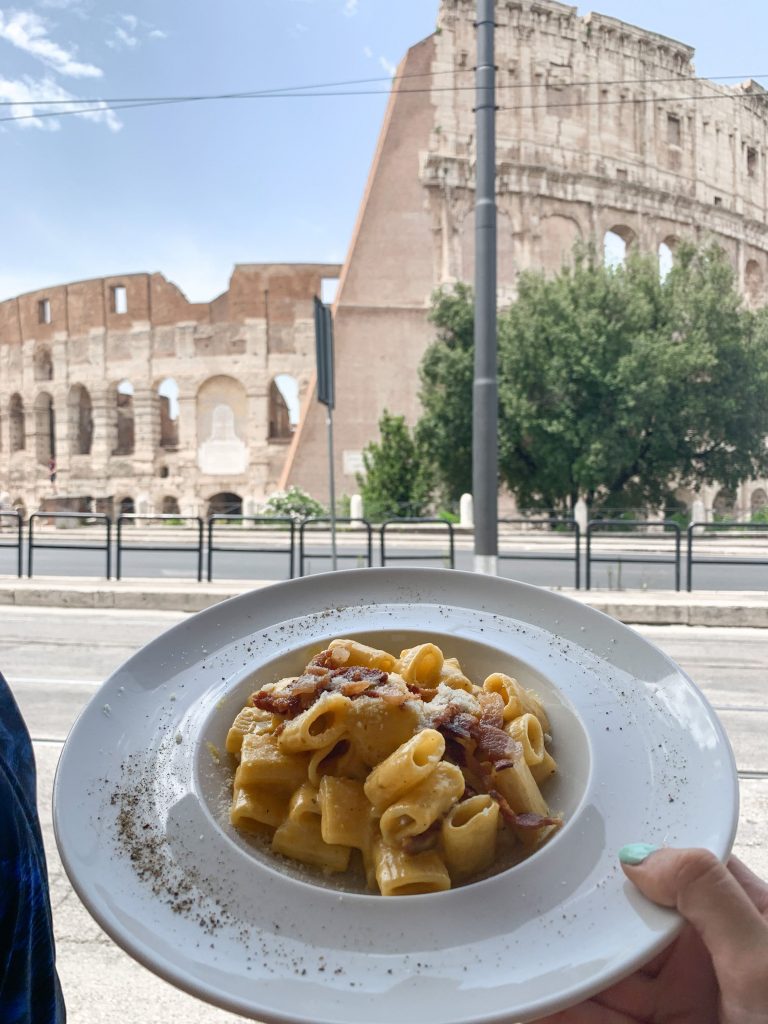Strat Comm Without Borders

Communication is often one of the first concerns students who study abroad have. Language is such a big part of experiencing a culture that it may completely isolate an outsider. While it is true that understanding the language is a critical part of communicating, learning how to correctly pronounce parmesan or bruschetta is much easier than relearning effective mass communication through an international perspective. During my study abroad experience, one of my final assignments was to create a food blog. This came with two responsibilities: trying out every kind of Italian cuisine I could (I took one for the team here) and pocketing my preconceived notions about mass communication to listen to new possibilities. While the most Italian language I learned was my gelato order, my horizon was exponentially expanded regarding effective international mass communication.
Pasta is probably the first thing that comes to mind when you think of Italy. While I can’t deny that I ate more pasta in that month than I probably ever will again, Italian food culture goes much deeper than just copious amounts of pasta. I discovered the rich history and the deeply rooted traditions as a writer for our food blog, Ciao Down Arezzo (shameless self-plug). In the process of working with my classmates to create a website and write, edit and publish 26 articles, we discovered that food writing, especially critiques of cultural cuisine, can be as delicate as a flaky breakfast croissant.

Cultural misunderstandings can quickly turn into an unsatisfying dining experience. One night, I went out to review a restaurant for an article. After receiving my food, I waited another 15 minutes until the very last person had been served. Initially bothered by the fact that I would now have to eat cold pasta, I was gearing up to write a scathing review of a restaurant I believed to be uncaring and inattentive to its guests. Thankfully, before turning in my final draft, I learned that it is customary for servers to bring food as soon as it is ready and for the diners to eat when their food comes, even if they are the first and only one to be served. I quickly revised my article and made a mental note to tuck my preconceptions in my back pocket for the remainder of the trip.
Studying abroad was truly the life changing experience it promised to be. I felt especially affected as a communications major. Understanding new perspectives and being able to strategically communicate across national borders was the most valuable souvenir from the trip. It was also the easiest to pack. As Mark Twain wrote, “travel is fatal to prejudice, bigotry, and narrow-mindedness.”

Rachel Orland is a senior public relations major at the University of Oklahoma and the president of the PRSSA Chapter. She loves exploring new things, anything from new books to new countries, and her hobbies are cooking, reading, and figure skating. Her favorite part about being a PRSSA member is the connections you can make across the country with professionals and students.
